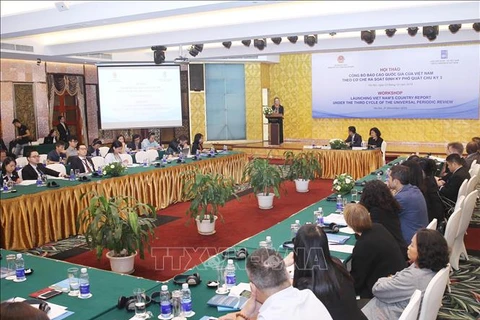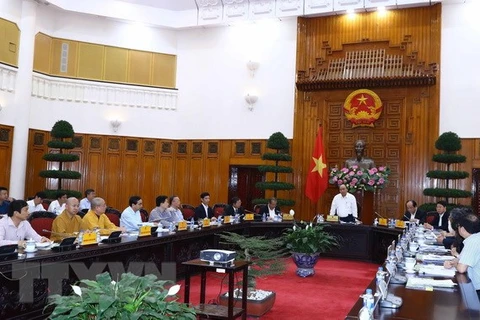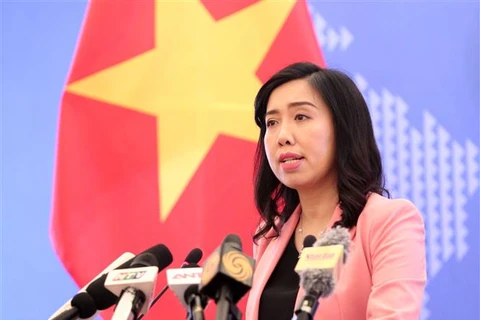New York (VNA) – Partnership between the United Nations and regional organisations should be promoted in politics-security, economy, and culture-society for better coordination in dealing with emerging regional and global challenges, stated Ambassador Dang Dinh Quy, Head of Vietnam's Permanent Mission to the United Nations.
The diplomat made the statement at a UN Security Council open discussion themed “Cooperation between the United Nations and Subregional Organisations: The Role of States, Regional Arrangements, and the United Nations in the Prevention of Conflict” on December 6.
Highlighting the important role of the UN’s collaboration with regional countries and individual states in ensuring peace, stability, and development in the world, he held that it is necessary to underline the major responsibilities of relevant countries in preventing and settling disputes.
All countries should abide by international law, including the peaceful settlement of disputes, he said, adding that the UN and regional organisations should play a key role in upholding and promoting common values, the norms of conduct, and principles of international law for the maintenance of friendship among countries.
The UN should give more support to regional organisations with experience in peace-building and -keeping, said Ambassador Quy, adding that such organisations, with their knowledge of social, ethnic, historical, and political issues, will help enhance the efficiency of the UN.
The ambassador said that the affiliation between the ASEAN and UN is significant to both and that Vietnam is delighted at the outcomes of the ASEAN-UN plan of action for the 2016-2020 period.
As an ASEAN member, Vietnam hopes to share experience earned from ASEAN activities and ASEAN-UN cooperation, he stressed, pledging that Vietnam will work closely with other countries for a common target of peace, security, and development in the world.
Addressing the discussion, UN Secretary General Antonio Guterres said that the number of countries experiencing violent conflict is higher than it has been in 30 years, adding that low intensity conflicts have increased by 60 percent in the last 10 years.
“We have a responsibility to act – not in isolation, but collectively,” stated the UN leader.
Since he assumed office, he has prioritised the prevention of conflicts, natural disasters, and pandemics, as well as the foreseeable dangers posed by new technology.
The endorsement of the Action for Peacekeeping initiative by 151 member states is a strong sign of support for the central role of our peacekeepers in preventing the escalation of conflicts and in proactively supporting peace, he said.
The UN’s work to achieve the 2030 Agenda for Sustainable Development, from human rights and humanitarian affairs to gender equality, environmental protection, and combating climate change, has played a significant role in preventing conflict, said the UN leader.
Representatives of more than 60 countries and international organisations shared their viewpoints and experience in fostering UN cooperation with regional and sub-regional organisations, as well as nations. –VNA
VNA























